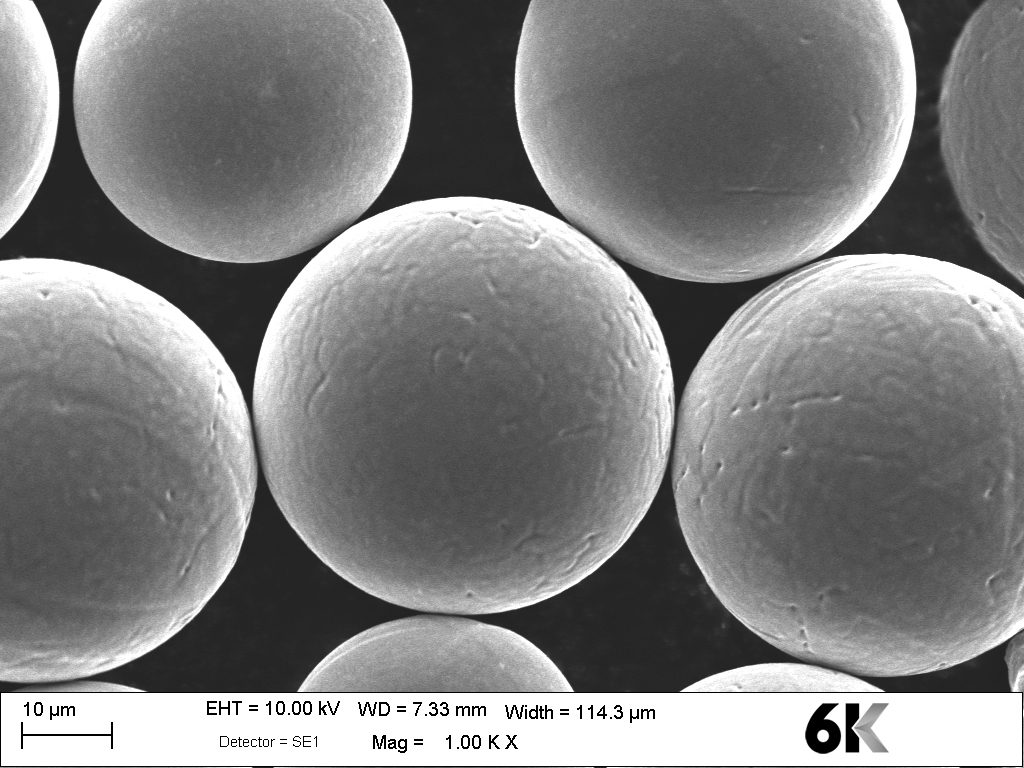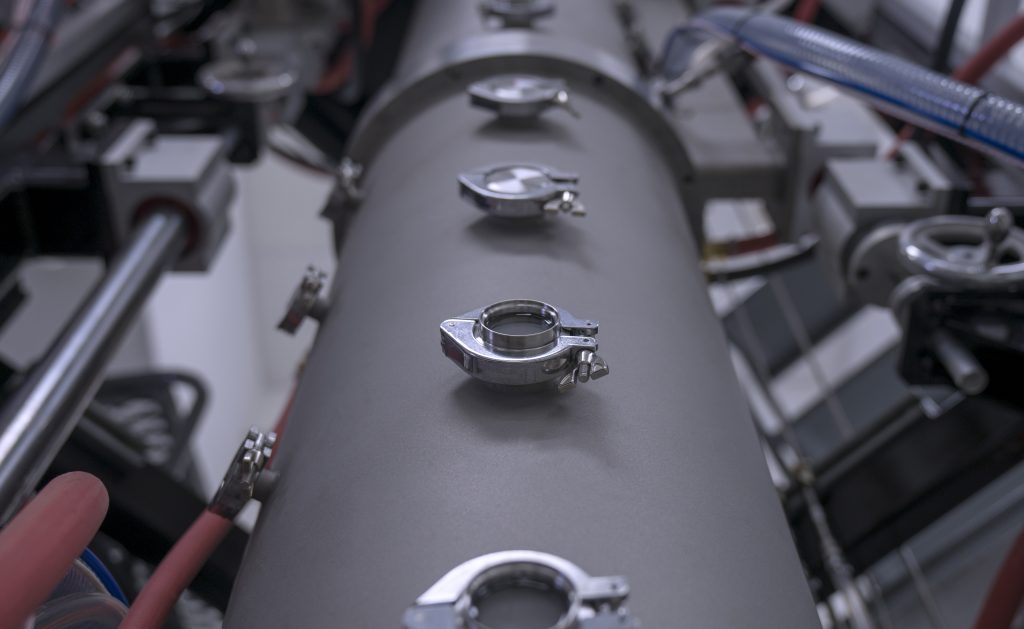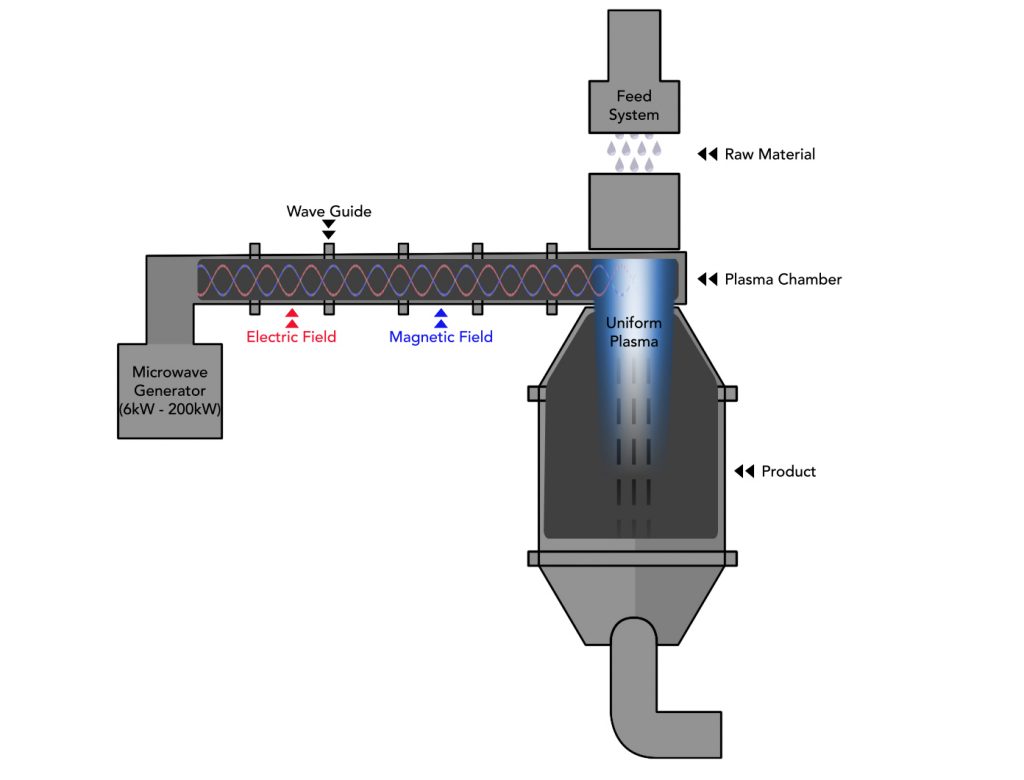The additive manufacturing materials market has a new challenger. Formally launched November 4, 2019, 6K is a company leveraging microwave plasma technology to turn waste millings, turnings and other used feedstock into high quality, uniform powdered materials. Promising an advanced level of sustainability that 3D printing and the manufacturing sector needs, the method is pitched competitively against the likes of gas and plasma atomization.
3D Printing Industry speaks to Aaron Bent, CEO of 6K, to learn more about the advantages of the company’s Alloy Reclaimation technology and UniMelt plasma system, poised to drive demand for sustainable powders across industry. Bent comments, “6K’s mission is to enable our customers to build a better business case, not just cherry picking the few applications that make sense economically, but to accelerate the adoption and expansion of additive manufacturing,
“We want to give designers a tool to build boldly for AM.”

Amastan Technologies and AL Solutions become 6K
Headquartered in Boston, Massachusetts, 6K is the re-branding of material manufacturer Amastan Technologies and Pittsburgh titanium materials production specialist AL Solutions, Inc. Amastan Technologies was founded in 2014 to commercialize a powder production process invented at the Massachusetts Institute of Technology (MIT) in collaboration with the University of Connecticut (UConn). This same process, a patented microwave plasma production platform, is the UniMelt technology now at the core of 6K’s unique proposition. As Bent comments, “It’s an MIT spin out technology that we’re really now moving into full scale production capabilities.”
The expertise AL Solutions brings to 6K includes a proprietary handling technology for reclaiming metals, forming the second aspect of the business. “The AL Solutions has been operating to get its ISO 9001 [certification] for over 20 years,” Bent adds, “They have canned over a million pounds of Ti-64 a year, so they’re a very capable team.”
The two companies joined together in May this year, following Amastan’s acquisition of AL and successfully raising $11 million in Series B-2 capital funding. The capital raised in this round is being used to expand the former AL Solutions site in Pittsburgh to include a 40,000 sq foot production facility, and support ongoing R&D activities at 6K Innovation center in Boston.

UniMelt a “highly uniform, precise, zero contamination, powder production technology”
“6K” stands for 6,000, which is the temperature of its proprietary UniMelt process and, incidentally, the surface of the sun (5778°C to be exact). It is the combination of this high heat, reactive ions, and designed chemistries that enable the method to turn non-uniform waste materials into homogeneous, spherical powders.
From start to finish, the 6K UniMelt process is expected to take less than 2 seconds to make a batch of material, 1/100,000th the time of other atomization processes. Against gas atomization, UniMelt is credited with using just one fifth of the amount of gases, reducing the cost of the process, and also, making production sustainable. Compared to plasma atomization, Bent says that 6K UniMelt is “at least twice as efficient,” requiring at least half the amount of electrical energy to get the same yield. And, in what Bent highlighted as perhaps the most significant advantage of UniMelt, the process capable of 100% yield in powder production, compared to a typical 25% yield from gas atomization, attaining specific targets for batch production.

So far, 6K has successfully applied the UniMelt process to the production of metal alloys and ceramics which can be used in MIM, L-PBF, EBM, DED or Binder-jetting systems. High temperature polymers, like PEEK, have been tried on an experimental level at the company. The process is also proving especially proficient at working with High Entropy Alloys that can’t currently been manufactured at scale. One example would be a 3D printable, 6000 series aluminum alloy.
“This is not gas atomization. It is not [standard] plasma. It is something entirely different,” states Bent. “It is a highly uniform, precise, zero contamination, powder production technology that can not only do AM powders, but it is capable enough to do highly precision battery materials, used in lithium ion batteries, and electric vehicles.”
Any metal, alloy or ceramic
The potential for the company’s technology is wide-ranging, as Bent tells me, 6K technology is capable of processing “virtually any metal, any alloy and any ceramic.”
The first metal alloys and ceramics produced using 6K UniMelt and Alloy Reclaimation technology will be presented to the public at Formnext 2019 later this month. In addition to material samples, 6K will also be exhibiting a 12 ft. tall replica powder production unit at the show.
Concluding comments on the company, Bent adds:
“We’ll consider our job well done when every service bureau or every OEM reselling powders is getting demand for sustainable powders.”
Find 6K at Formnext 2019 for more information at stand E22, Hall 12.
For all of the latest additive manufacturing materials news subscribe to the 3D Printing Industry newsletter, follow us on Twitter and like us on Facebook. Looking for a career in this industry? Visit 3D Printing Jobs for a selection of roles in the industry.
Featured image shows a 6K UniMelt microwave plasma production unit. Photo via 6K



